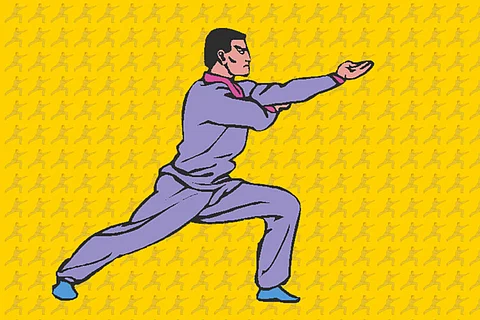

November 19 is observed as International Men's Day. Considering the privileged position men hold in a mostly patriarchal world, the day may seem pretty redundant – but as a person hoping to look at the silver lining everywhere, I guess it can perhaps be a day when we discuss actual issues that affect men. ‘Men’s Rights Activists’ in India, however, insist on sticking to whataboutery, only when women's rights issues are in the spotlight.
International Men's Day was first observed in 1992, in Kansas City in the United States. The idea was conceptualised by Thomas Oaster, a professor from Missouri University, who was also a passionate advocate of 'men's rights'. Subsequently, the day was taken up by ‘Men’s Rights Activists’ (MRAs) in other countries and it was first observed in India in 2007, with the initiative taken by Save Indian Family, a well-known MRA organisation.
In India, the debate on men's rights has centered around allegations of false dowry and domestic violence complaints. The laws, MRAs feel, are ‘loaded’ in favour of women victims, making men ‘vulnerable’ to the legal system – despite the fact that hardly any women get justice. However, there is little examination and effort to dismantle the highly unequal structures which have made it necessary for such laws to come into being. The emphasis is on 'misuse' of law, although the extent of such instances is highly contested.
So on International Men’s Day this year, here are five issues that MRAs in India should consider focusing on, instead of women bashing like every other day in the life of an MRA.
1. Mental health: Despite all the noise that MRAs make on men driven to suicide by marriage, there isn't enough focus on mental health and gender as there should be. As this article shows, more women than men are likely to attempt suicide because of marriage-related reasons. In fact, as a demographic, homemakers have the highest rate of suicide, even more than farmers.
However, as is the trend world-over, more men than women kill themselves in India. The reasons for suicide are many, ranging from ideas about masculinity leading them to bottle up emotions, pressure to provide for the family, financial issues, and the fact that more men than women are prone to substance abuse.
By focusing all their energies on mental health only in the context of marriage, MRAs lose sight of the fact that there are several reasons why men go through depression and other mental health issues. Can MRAs please use their time and effort to address these issues in a holistic manner, instead of reducing the seriousness of mental health issues among men?
2. Men, caste and community: While men may belong to a privileged gender, they are not a homogeneous group. A Dalit man, for instance, is oppressed by people of all genders who are savarna, including women. From subtle forms of discrimination like denial of job opportunities or growth at the workplace, to violent acts ranging from humiliation and murder, men from oppressed caste groups and communities are subjected to many forms of violation. The perpetrators of such acts are often men.
Just as feminists must be conscious of intersectionality when fighting for women's rights, MRAs, too, should recognise that gender is only one among the many identities that a person has, and be willing to confront the systemic inequalities within the large group called 'men'.
3. Men and sexuality: MRAs typically speak only for cisgender, heterosexual men because much of their focus is on the heteronormative family. But what about queer men and trans men? Or does speaking about their issues challenge their heteronormative masculinity too much?
4. Men and sexual abuse: Repeated studies have shown that the sexual abuse of boys is widespread in India. In fact, in this 2007 study conducted by the Ministry of Women and Child Welfare, more boys than girls were found to have been sexually abused. While it is difficult for survivors of sexual violence to speak up, it is all the more difficult for boys because of their gender.
The perception that men always want sex if they are to be considered 'real men' leads to shame and silence when the victim happens to be male. Similarly, male rape is rarely discussed and is often made the subject of distasteful jokes. Shouldn’t MRAs take these issues seriously and focus on making the society safer for male victims of sexual abuse?
5. Men and violence: World-over, more men than women die due to violence – wars, gang rivalries, street violence, substance abuse and so on. However, unlike sexual harassment or rape, such instances are not considered to be ‘gender-based’ violence. This is because men are not targeted specifically for their gender.
However, it is important to recognise that men are often in a position where they are subjected to violence because of ideas of masculinity. For example, armies and on ground law enforcement forces world-over comprise of a male majority. The perpetrators of violence in a majority of cases, too, are men, and there are way more men in prisons than there are women. In India, for instance, only 4.3 percent of prisoners are women.
It is patriarchy which reinforces ideas of masculinity and femininity and if MRAs truly wish to fight it, they must become feminist allies instead of vilifying the women's rights movement in India as they so often have.